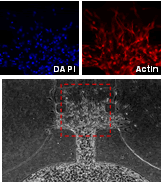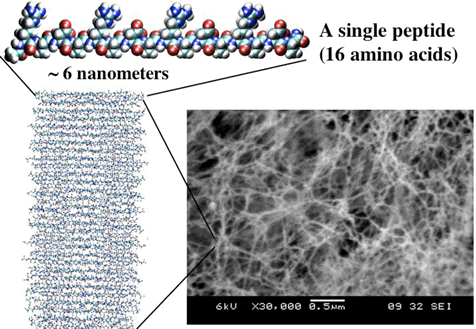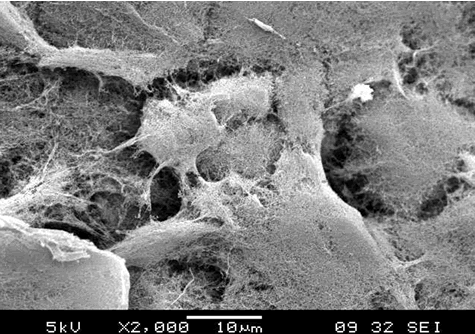
MIT - CBE
| Home |
| Administration |
| Research Areas |
| Core Facilities |
| UROP |
| Location |
Designer Biomaterials and Scaffolds for Regenerative Medicine and Drug Delivery A new family of designer bioactive peptide scaffolds enables mouse pre-osteoblasts and human umbilical vein endothelial cells to migrate into the scaffolds without additional growth factors. The fibroblasts also produce abundant type I and type III collagen, typical fibroblast collagen types that are important in the engineering and regeneration of fibrous connective tissues. Collaborating CBE biophysicists have perfected AFM-based tools to quantify, in a high throughput fashion, the kinetics of gelation and the mechanical properties of these peptide scaffolds. These mechanical properties are extremely important determinants in the spreading, adhesion and differentiation of stem cells within the peptide gels. |
 |
|---|---|
 |
|
 |
